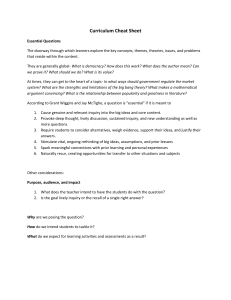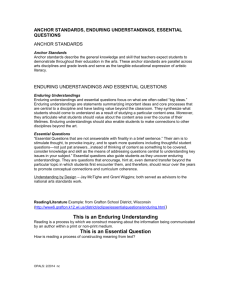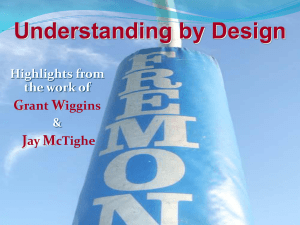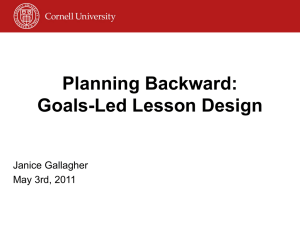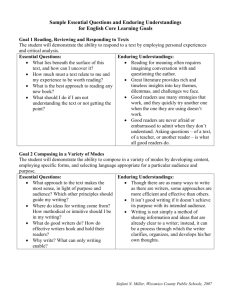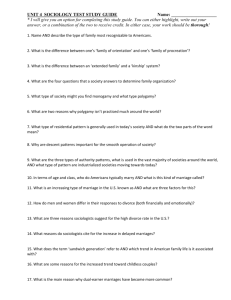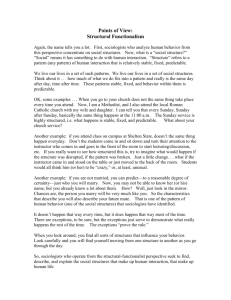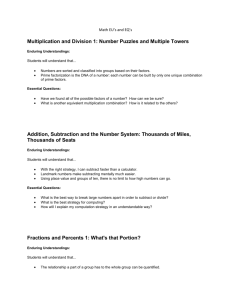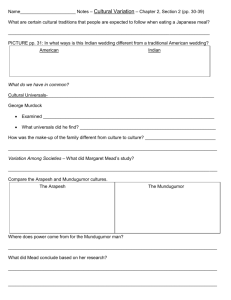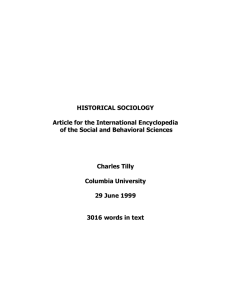Social Studies Enduring Understandings
advertisement
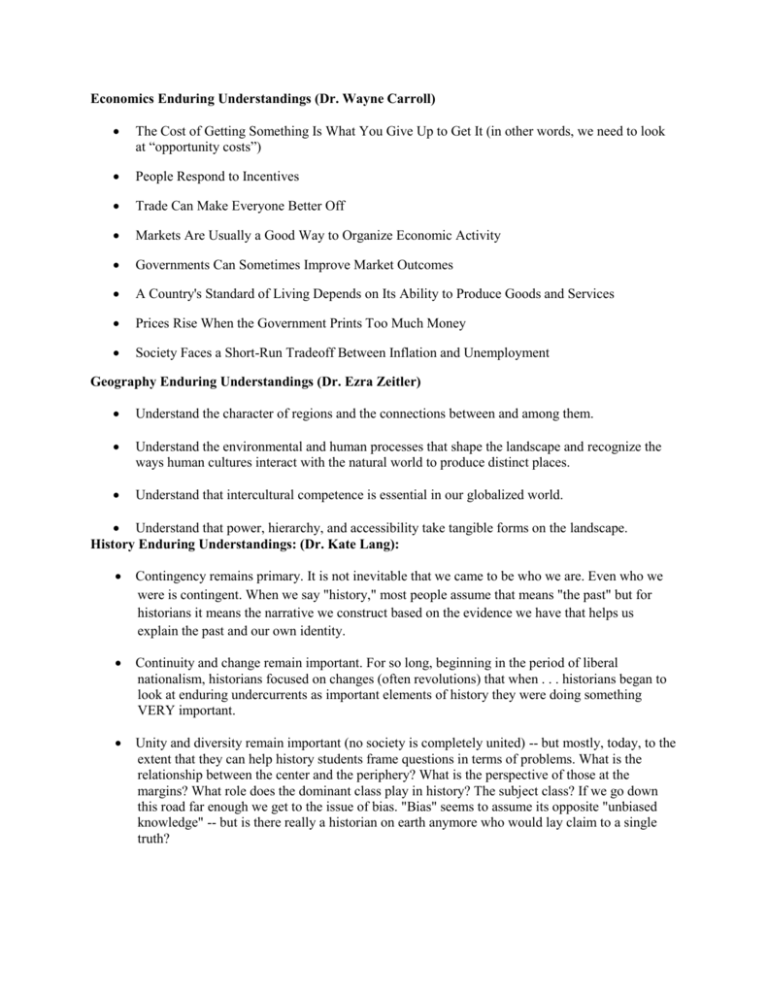
Economics Enduring Understandings (Dr. Wayne Carroll) The Cost of Getting Something Is What You Give Up to Get It (in other words, we need to look at “opportunity costs”) People Respond to Incentives Trade Can Make Everyone Better Off Markets Are Usually a Good Way to Organize Economic Activity Governments Can Sometimes Improve Market Outcomes A Country's Standard of Living Depends on Its Ability to Produce Goods and Services Prices Rise When the Government Prints Too Much Money Society Faces a Short-Run Tradeoff Between Inflation and Unemployment Geography Enduring Understandings (Dr. Ezra Zeitler) Understand the character of regions and the connections between and among them. Understand the environmental and human processes that shape the landscape and recognize the ways human cultures interact with the natural world to produce distinct places. Understand that intercultural competence is essential in our globalized world. Understand that power, hierarchy, and accessibility take tangible forms on the landscape. History Enduring Understandings: (Dr. Kate Lang): Contingency remains primary. It is not inevitable that we came to be who we are. Even who we were is contingent. When we say "history," most people assume that means "the past" but for historians it means the narrative we construct based on the evidence we have that helps us explain the past and our own identity. Continuity and change remain important. For so long, beginning in the period of liberal nationalism, historians focused on changes (often revolutions) that when . . . historians began to look at enduring undercurrents as important elements of history they were doing something VERY important. Unity and diversity remain important (no society is completely united) -- but mostly, today, to the extent that they can help history students frame questions in terms of problems. What is the relationship between the center and the periphery? What is the perspective of those at the margins? What role does the dominant class play in history? The subject class? If we go down this road far enough we get to the issue of bias. "Bias" seems to assume its opposite "unbiased knowledge" -- but is there really a historian on earth anymore who would lay claim to a single truth? So much of the canon is rooted in the tradition, that students need to understand both how that canon came to be and what its limitations are. The canon is still the basis of textbooks. But there are other perspectives. Finally, history values both synthesis and analysis -- the ability both to examine evidence closely and to place it in a broader context. Hopefully, (historians are just beginning to go here and I think it is a movement toward social studies) students of history learn to make informed judgments about ideas, people, and events and this skill will carry over to civic engagement. Political Science Enduring Understandings (Dr. Rodd Freitag): Political Science is the study of “who gets what, when, how, and why.” The central concept of Political Science “is always about power.” Sociology Sociology Enduring Understandings: (Dr. Jeremy Hein) Sociology is a science; sociologists work with data. Concerning theories and methods, sociologists have different points of view. When sociologists attempt to explain human nature, everything they attempt to describe is learned behavior only (socialization). Sociologists believe that culture is a way of life and that humans take a great deal of time to learn the knowledge and skills of their particular society. Sociologists believe that society has a framework (social structure); this represents the idea that institutions have recurring needs and are invented to meet those needs. Sociologists believe that social inequality exists in all societies; people benefit more or less from a social institution and any significant difference in resources we would call an inequality. Sociologists recognize how societies change over time (social change); this inevitably leads to global trends that affect other societies. Social Studies Broadfield Social Studies Enduring Understandings: (Dr. Jerry Worley) “Indeed, all things are connected.” –Native American Proverb- “The study of social studies helps young people learn about . . . their own place in the world.” – Planning Curriculum in Social Studies, Wisconsin Department of Public Instruction, p. xvii- The study of the social studies influences students toward independence and civic competence by engaging in critical thinking centered round the students’ changing physical, cultural, political, and economic worlds. Indeed, all things can be explained . . . eventually.
